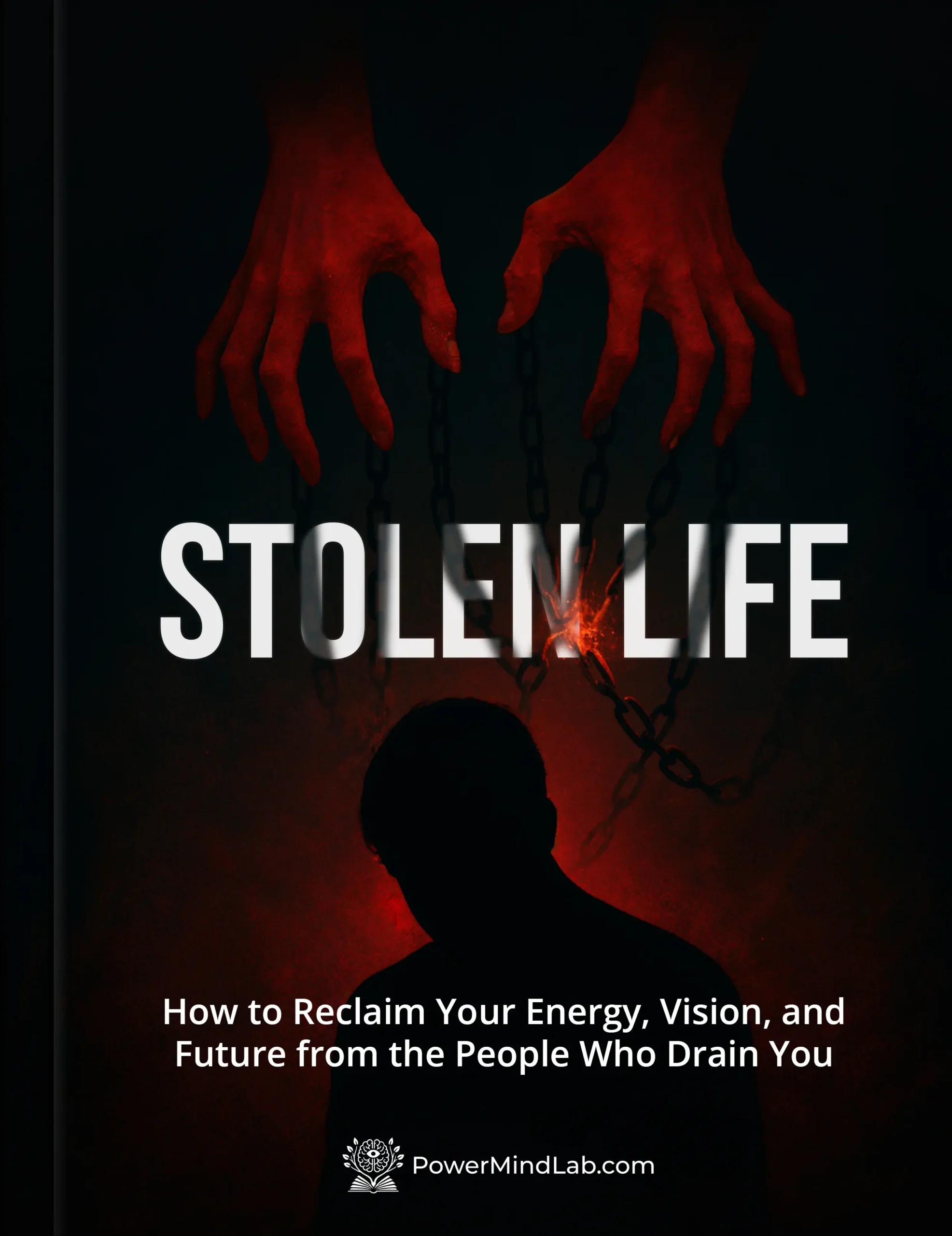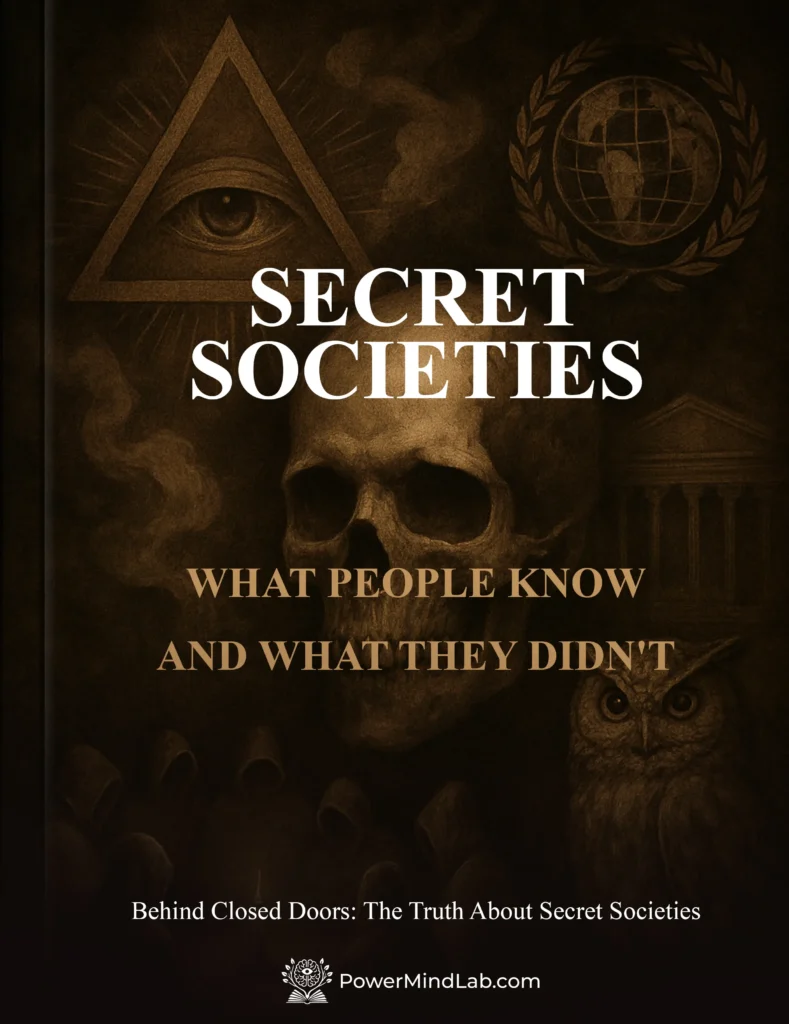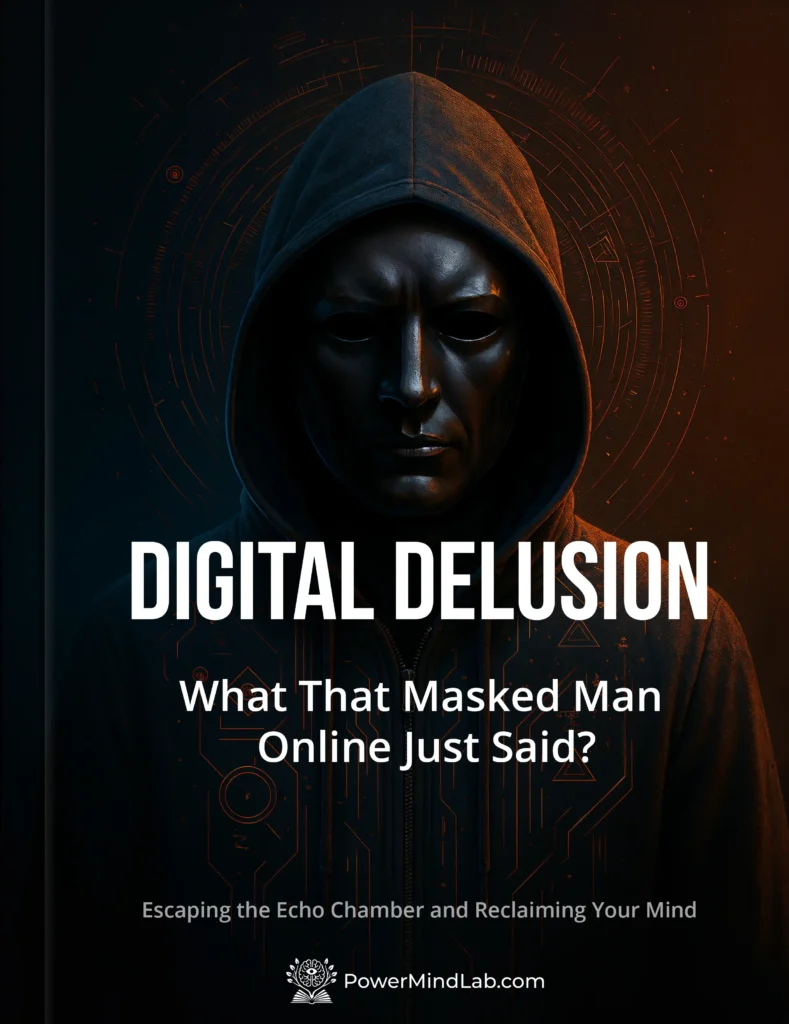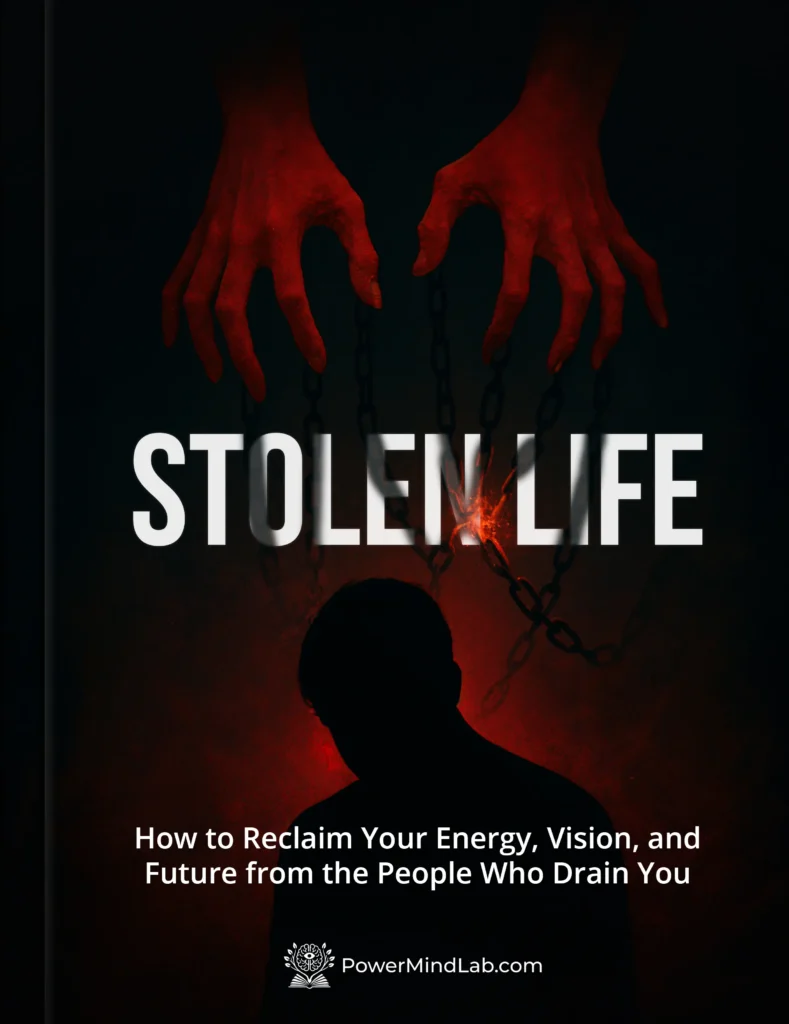
Stolen Life
How to Reclaim Your Energy, Vision, and Future from the People Who Drain You
- Genre: Emotional Intelligence, Love & Relationships, Personal Transformation
- Formats: EPUB, PDF + AudioBook
- Print length: 101 pages
- Language: ENG
- Full file size: 32.63 MB
Book only
Includes:
eBook (EPUB + PDF)
Book + Audiobook
Includes:
- eBook (EPUB + PDF)
- Audiobook (MP3)
- Read Anytime
- Instant Download
- Great on Every Device
- 14-Day Support Guarantee
- Instant Download
- Read Anytime
- Great on Every Device
- 14-Day Support Guarantee
Synopsis
Some people don’t just take your time – they steal your life.
You feel exhausted, confused, and emotionally hijacked. It’s not in your head. It’s not your fault. You’ve been drained by people who feed on your energy, peace, and potential.
Stolen Life is your wake-up call – and your roadmap back to freedom. This book uncovers the subtle manipulation, emotional sabotage, and silent conditioning that energy vampires use to keep you stuck. Then it shows you exactly how to cut the cords, reclaim your vision, and rebuild a life that’s fully yours.
If you’ve ever felt trapped in someone else’s chaos, this is your way out – and your way home.
Look Inside
INTRODUCTION
You’re not unmotivated. You’re being drained
Modern neuroscience is clear:
Your attention is your most valuable asset…
INTRODUCTION
You’re not unmotivated. You’re being drained
Modern neuroscience is clear:
Your attention is your most valuable asset.
Your prefrontal cortex – the seat of focus, planning, and long-term vision – is easily hijacked by stress, emotional noise, and social obligation.
You’re not lazy. You’re not confused. You’re neurologically overloaded.
Not by work.
Not by the system.
But by the people around you.
The “supportive” friends who always want to talk, but never execute.
The family members who live with you but ignore your vision.
The partners who subtly resent your progress.
The colleagues who steal your ideas and praise – but never pay it forward.
The emotional parasites who don’t build their own fire – they feed on yours.
They don’t want to stop you.
They just want to slow you down enough that they don’t have to face their own stillness.
This Book Is a Neural and Emotional Reset
We live in a society that normalizes emotional labor, guilt-tripping, and the myth that togetherness = loyalty.
But let’s tell the truth:
- Too much “togetherness” kills momentum.
- Talking too early about your goals floods your dopamine system and makes you less likely to follow through.
- Sharing ideas with people who don’t build exposes your brilliance to theft – and weakens your inner drive.
- Living with draining people erodes your nervous system and delays your calling.
- Financial co-dependency in early stages of growth destroys your focus and wealth potential.
This book dismantles all of it – with science, strategy, and unapologetic honesty.
This Is for You If…
- You feel like your energy leaks out before your day begins
- You’ve watched others absorb your ideas, only to leave you behind
- You’re caught in a shared living dynamic (family, friends, partner) that keeps you stuck in emotional mud
- You feel like progress comes at the cost of peace – or vice versa
- You’ve been made to feel selfish for focusing on your vision
- You’ve struggled with sharing too soon, only to feel deflated and exposed
- You’re ready to reclaim your sovereignty – without becoming cold or isolated
The Brain Behind the Burnout
Every time you explain yourself, justify your choices, or manage someone’s emotions, your brain burns energy.
That energy comes from the same part of your brain you need to:
- Think long-term
- Focus deeply
- Generate ideas
- Make strategic moves
- Delay gratification
- Build sustainable wealth
- Stay emotionally regulated
Emotional leakage = cognitive depletion.
Your tiredness is neurological – not moral.
If you don’t take your brain back, your life will never feel like yours.
The Purpose of This Book
This is not just a book about toxic people.
It’s a book about toxic dynamics – many of which are unintentional, subconscious, or inherited.
Inside, you’ll learn how to:
- Identify invisible emotional contracts that keep you stuck
- Navigate living with people who drain or delay you
- Protect your ideas, energy, and goals from premature exposure
- Handle idea theft and emotional mimicry without becoming jaded
- Stop over-explaining and start moving in silence
- Know when someone can evolve – and when to strategically exit
- Build momentum and wealth without leaking your power
- Create a future you actually control – emotionally, mentally, and financially
What Makes This Book Different
This book isn’t based on vague self-help fluff.
It’s rooted in real neuroscience, real boundaries, and real-world situations – like:
- Parents who guilt you while living under the same roof
- Friends who drain your momentum by “doing it together” and going nowhere
- Partners who subtly sabotage your clarity while asking you to “communicate more”
- Idea-stealers who extract value, but never invest back
- Early-stage dreamers who talk too much, share too fast, and wonder why it dies
You’ll learn the truth about energy, drive, and execution – and why protecting your mind, time, and ideas is the key to every form of power.
You Can Live Free, Fully, and With the Right People
This isn’t a call to become cold.
It’s a call to become clear.
There are good people.
There are real collaborators.
There are high-frequency humans who don’t need to drain you to feel alive.
This book will help you find them.
But first, we reclaim you.
Let’s Begin.
What You Will Learn
- How to recognize emotional vampires and reclaim your boundaries with confidence
- The psychological tactics manipulators use – and how to neutralize their influence
- Why chronic exhaustion, guilt, and confusion are signs of energetic theft
- A clear path to detachment, healing, and mental clarity
- How to rebuild your energy, purpose, and identity from the inside out
- Practical tools to protect your peace, amplify your vision, and stay free for good
Audio Sample
About the Authors
PowerMindLab authors blend deep research on psychology, human behavior, and personal growth with real-world insight, dedicated to uncovering the hidden forces that shape your mind, emotions, and relationships. Our books help you reclaim your power, sharpen your mind, and master the inner game of life.
Readers reviews
23 reviews for Stolen Life
Have you read this book?
Share your thoughts Cancel replyWhat You Will Learn
- How to recognize emotional vampires and reclaim your boundaries with confidence
- The psychological tactics manipulators use – and how to neutralize their influence
- Why chronic exhaustion, guilt, and confusion are signs of energetic theft
- A clear path to detachment, healing, and mental clarity
- How to rebuild your energy, purpose, and identity from the inside out
- Practical tools to protect your peace, amplify your vision, and stay free for good
Audio Sample
About the Authors
PowerMindLab authors blend deep research on psychology, human behavior, and personal growth with real-world insight, dedicated to uncovering the hidden forces that shape your mind, emotions, and relationships. Our books help you reclaim your power, sharpen your mind, and master the inner game of life.
Sign Up For Books Series
*By completing and submitting the form, you agree to receive from Power Mind Lab. To learn more about how we use your information, see our Privacy Policy page.
The Hidden Architecture Trilogy
- Behind Closed Doors: Secret Societies - book + audiobook (Power structures revealed) 16,95 €
- Digital Delusion - book + audiobook (How tech shapes perception) 16,95 €
- Stolen Life - book + audiobook (Escaping psychological captivity) 16,95 €



Randy S**** –
Pros: Clear metaphors, relatable case studies, useful reframes like ‘silent contracts.’ Cons: Overly dramatic tone in some chapters. Overall: Worth it if you’ve ever felt inexplicably drained after conversations.
Jack B**** –
Kyle M**** –
So yeah, apparently I’ve been letting emotional freeloaders camp out in my life rent-free. Thanks for the wake-up call. Wish it came with an eviction notice template.
Clinton L**** –
It basically told me to stop being a battery pack for everyone else. Which, fair. Now if only I could forward this book to half my family without starting World War 3.
Keith H**** –
Honestly, it felt like a friend shaking me and saying ‘stop explaining yourself to everyone.’ I laughed at parts, cringed at others, but kept underlining. Definitely staying on my desk.
Connor S**** –
Strength: solid explanation of decision fatigue and why over-explaining burns brainpower. Weakness: the dramatic tone sometimes undercuts the science. Net impact: a wake-up call worth reading.
Melissa H**** –
Half of this book felt like it was written directly to my ex-boss. Manipulators, idea stealers, people who smile while draining you dry—it’s all here. It was like therapy, but cheaper. Still mad I needed it though.